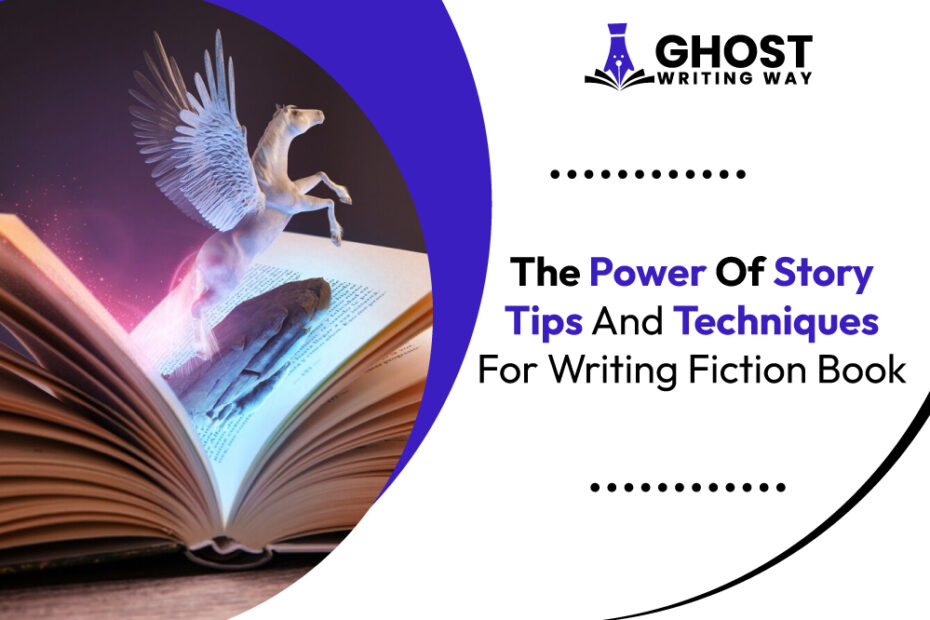The Power of Story” is a comprehensive guide for aspiring authors. Providing practical tips and expert techniques for crafting compelling fiction. It explores essential elements of writing fiction. From character development to creating immersive settings.
Whether you’re a fiction writer or an experienced author. This guide inspires creativity with practical tips and interactive exercises. Delving into fiction writing secrets and the power of storytelling.
Types of Fiction Writing
Fiction writing is the composition of non-factual prose texts. Different types of fiction encompass various genres and forms. Each with its unique characteristics and conventions. Although there are many more subcategories, most genre fiction will fit into one of these categories. Some common types include:
1. Literary Fiction
2. Science Fiction
3. Fantasy
4. Mystery/Thriller
5. Romance
6. Historical Fiction
7. Horror
8. Adventure
These are just a few examples and many works of writing fiction can blend elements from multiple genres creating hybrid forms that defy easy categorization.
What Is a Fiction Book?

Writing fiction books are works of literature that tell imagined stories created by the author. They differ from non fiction writing which are based on real events or information. Writing fiction can include novels short stories and novellas. Offering a variety of genres and styles to entertain provoke thought and transport readers to new worlds and experiences.
What Makes A Book Fiction?
A book is considered writing fiction when its content primarily consists of imaginative elements. Here are key characteristics that define a book as fiction:
1. Books are based on imagination not reality.
2. Writing fiction creates fictional worlds or settings.
3. The author creates characters from imagination for books on writing fiction
4. Fiction books unfold plots imaginatively.
5. Fiction explores themes through storytelling.
6. Engaging emotional fiction.
7. Readers interpret stories subjectively based on experiences.
What To Write About Fiction?
Generating fictional narrative ideas involves exploring themes, characters, settings and plotlines using personal experiences and interests. The following steps inspire your creativity in deciding to write about fiction.
- Brainstorm favorite topics for creativity and motivation in writing interests.
- Reflect on personal experiences for authentic and deep writing.
- Be open to new unique ideas by experimenting with different genres.
- Craft intricate multifaceted characters with relatable personalities.
- Create engaging narratives with unique stories, pacing and suspenseful elements.
- Explore universal themes in writing fiction to convey deeper human insights.
- Detailed settings immerse readers in rich worlds with geography and culture.
- Seek inspiration from various sources
- Practice writing fiction regularly to improve.
Elements of Fiction Writing
Elements of fiction are the most important things in writing short story. Every element represents difference explanation and interpretation of what is the meanings that author want to deliver to the reader.
Elements of fiction itself have several major parts. Elements of fiction that I will explain in this essay is focused. A genre is the subject matter or category that writers use. The elements of fiction writing are the foundational components that authors use to create compelling narratives. Here are the six key elements:
6 Elements of Fiction:
1. Plot: The sequence of events that make up the storyline.
2. Character: Characters drive the plot with personalities.
3. Setting: Story setting impacts the narrative backdrop.
4. Point of View (POV): Different points of view in storytelling narratives.
5. Theme: Themes convey universal ideas in stories.
6. Conflict: Plot tension creates internal and external conflict.
What Is the Purpose of Fiction?
The purpose of writing fiction is diverse providing entertainment, emotional engagement and critical thinking. Fiction allows readers to escape reality and connect with characters. Explore universal truths and reflect on their own lives. Writing fiction enriches entertains and enlightens readers. Offering a gateway to new worlds and perspectives reflecting the human condition and imagination.
How To Write Fiction?
Writing fiction is the art of creating intricate plots. Rich characters and vivid settings to captivating readers and evoke emotions. Authors use dialogue, description and action to build tension and convey themes. Writers entertain, enlighten and inspire readers to explore different realities and the human experience.
How to Write A Fiction Story?
Nail down a winning story idea. Determine whether you’re an Outliner or a Pantser. Create an unforgettable main character. Writing a fiction story involves following key steps:
- Start with an idea
- Develop characters
- Outline the plot
- Set the scene
- Build tension
- Craft dialogue
- Show
- Don’t tell
- Revise
- Seek feedback
- Finalize for publishing
How To Write A Fiction Book?
Book writing services in USA develops an exciting idea, complex characters and engaging plot. Establish immersive settings and use descriptive language to engage readers. Incorporate authentic dialogue and show rather than tell the story. Revise multiple drafts with feedback to enhance storytelling. Stay dedicated to crafting a compelling book writing that resonates with readers.
Writing Tips For Fiction
Tips like allusion and allegory are essential in fiction writing including symbolism and figurative language like simile and metaphor. Readers come to know the characters through what they say and what they think and how they act.
- Start with an exciting strong idea or concept.
- Character development is key.
- Plot with engaging conflicts.
- Create immersive settings that transport readers to new worlds.
- Descriptive language and sensory details evoke emotions.
- Actions and experiences reveal characters.
- Explore diverse storytelling techniques for success.
- Edit manuscript with beta readers.
Fiction Book Ideas

Write about a place that you’ve never been to. Write in a particular accent, preferably one that you are familiar with. You can get compelling plot ideas by reading the news or historical texts or watching documentaries.
Here are some fiction writing ideas to ignite your imagination:
- A scientist gets trapped in a time travel paradox, facing moral dilemmas
- Follow a young protagonist at a magical academy, battling dark forces
- Survivors navigate a post-apocalyptic world, facing internal conflicts
- A family discovers a haunted house’s dark secrets and malevolent spirits
- Rebels fight oppressive AI overlords in a future where AI is sentient
- Adventurers explore parallel universes with dangers and mysteries
- Legendary figures go on epic quests in a mythical historical era
- A protagonist struggles with sanity in a psychological thriller
- Rebels challenge a totalitarian regime in a dystopian society
Fiction Book Genres

Fiction book writing genres offer unique storytelling styles, themes and settings. Science fiction, fantasy and historical fiction immerse readers in imaginary worlds and past eras. Literary fiction tackles human complexities with deep insight. Fiction caters to diverse preferences, inviting readers to captivating adventures.
Writing Fiction Conclusion:
Fiction writing offers a wide range of genres and styles for creative expression. Writers need to understand elements like plot character setting and theme to create engaging stories. Fiction serves various purposes such as entertainment and exploring human experiences. Ghost book writing are also readily accessible. Following writing tips can help writers bring their stories to life and captivate audiences. It’s a journey of self-expression with many resources available like books on writing, and for those seeking professional assistance.




